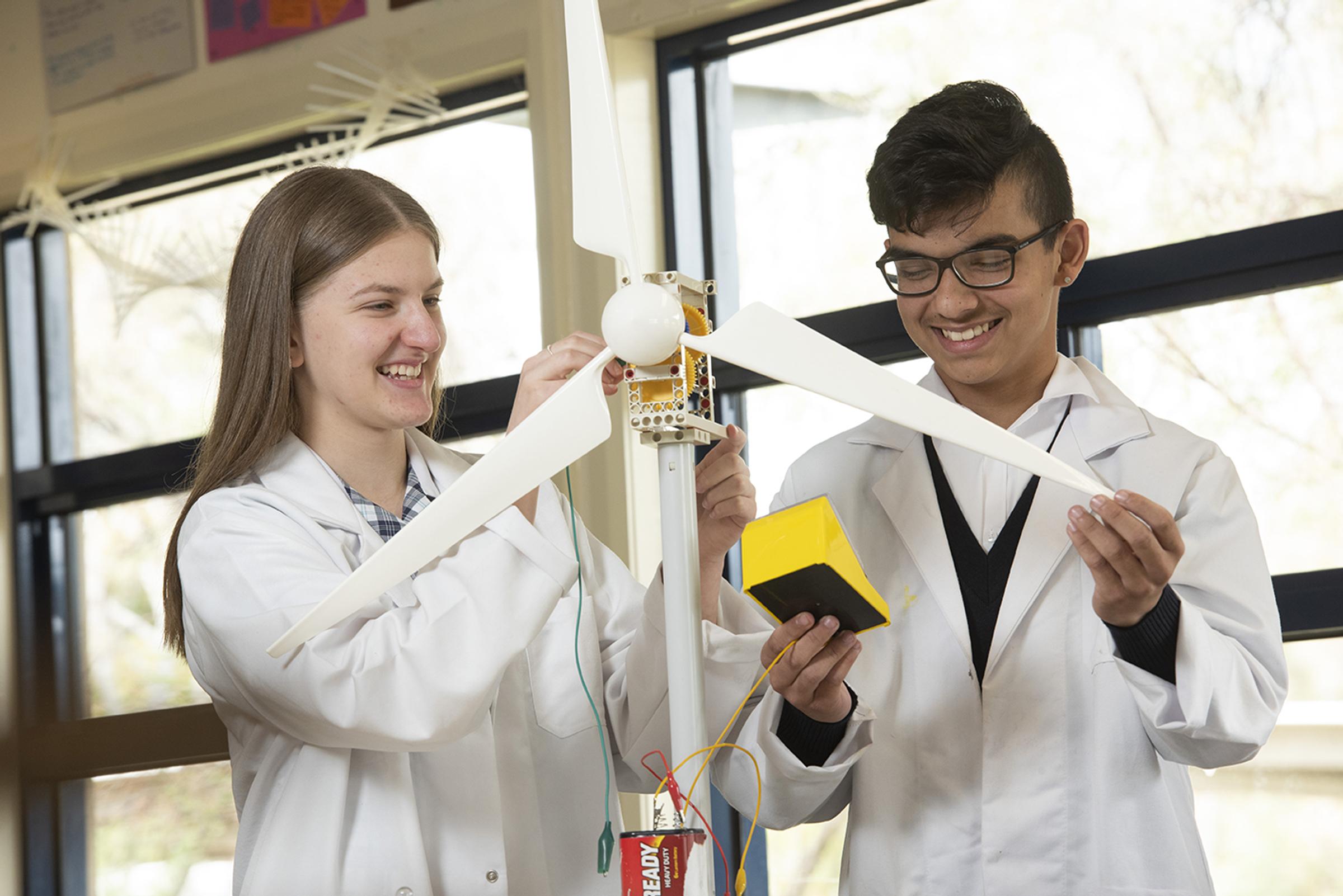Year 10 Science

PHYSICS
Students undertaking Physics will gain an appreciation that this natural science aims to explain phenomena in the physical world and is a dynamic and fluid science that changes with our developing understanding. Students will investigate theories surrounding the origin of our universe commonly known as “The Big Bang”. They will observe and experiment with the motion of everyday objects and the interactions between known forces. They will apply their understanding of physical laws by predicting and modelling these interactions. Students will be introduced to the Laws of Thermodynamics and develop an understanding of the role of heat transfers in energy transformations and the overall efficiency of mechanical systems.
CHEMISTRY
In Chemistry, students will further explore and be able to explain elements, compounds and molecules at the atomic level. They will understand the ways in which molecular substances bond together and be able to explain the difference between ionic and covalent bonds. They will further investigate how the structure of molecules can influence their properties. Through a range of experiments, students will explore and categorise the different types of reactions. They will investigate the commonalities and differences between combustion, decomposition, precipitation and synthesis reactions. They will also explore reactions and relationships between acids and metals.
BIOLOGY
In Biology students will identify the role of DNA and its importance in our understanding of biological processes. Students will develop an understanding of cellular division and its connection to genetic inheritance. They will develop their understanding of cell division by exploring mutations and conditions which are genetically inherited.
ENVIRONMENTAL SCIENCE
In Environmental Science students will analyse how living systems function and respond to external changes with reference to the interdependencies between individual components, energy transfers and flows of matter. They will explore the reasons and theories of why there is such a diversity of life on Earth. They will apply geological timescales to elaborate their explanations of both natural selection and the theory of evolution.
PSYCHOLOGY
Psychology is the study of human thoughts, feelings and behaviour. The discipline of psychology embraces all aspects of the human experience — from the functions of the brain to the environments in which humans and other animals develop; from child development to ageing. Students explore what psychologists do and all the different fields that psychologists work in including, health, sports, forensic and clinical. Students will begin to investigate sleep and dreams, learning and memory, social psychology and positive psychology. Through using Research Method skills, students will conduct ethically considered investigations and report their findings.
